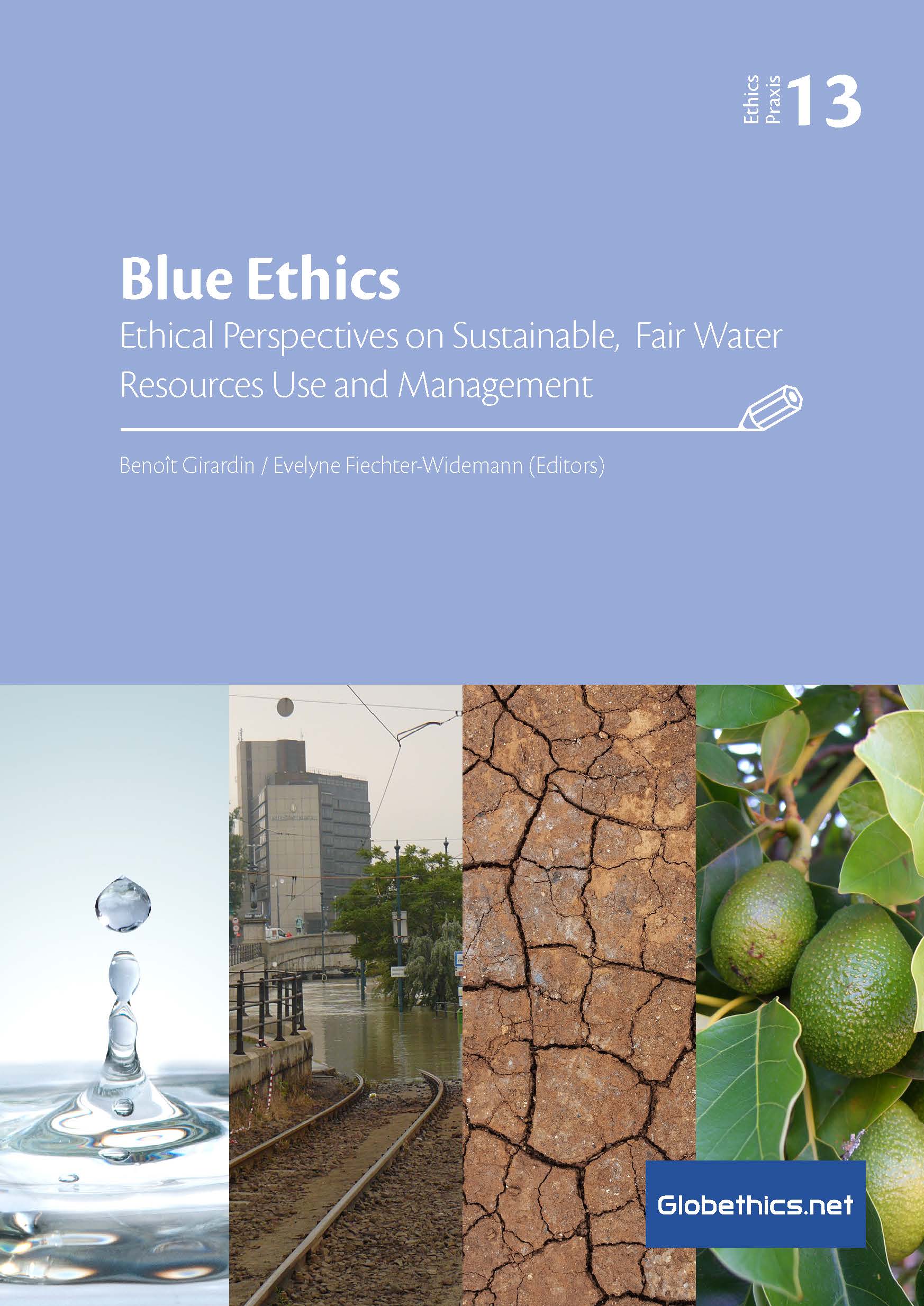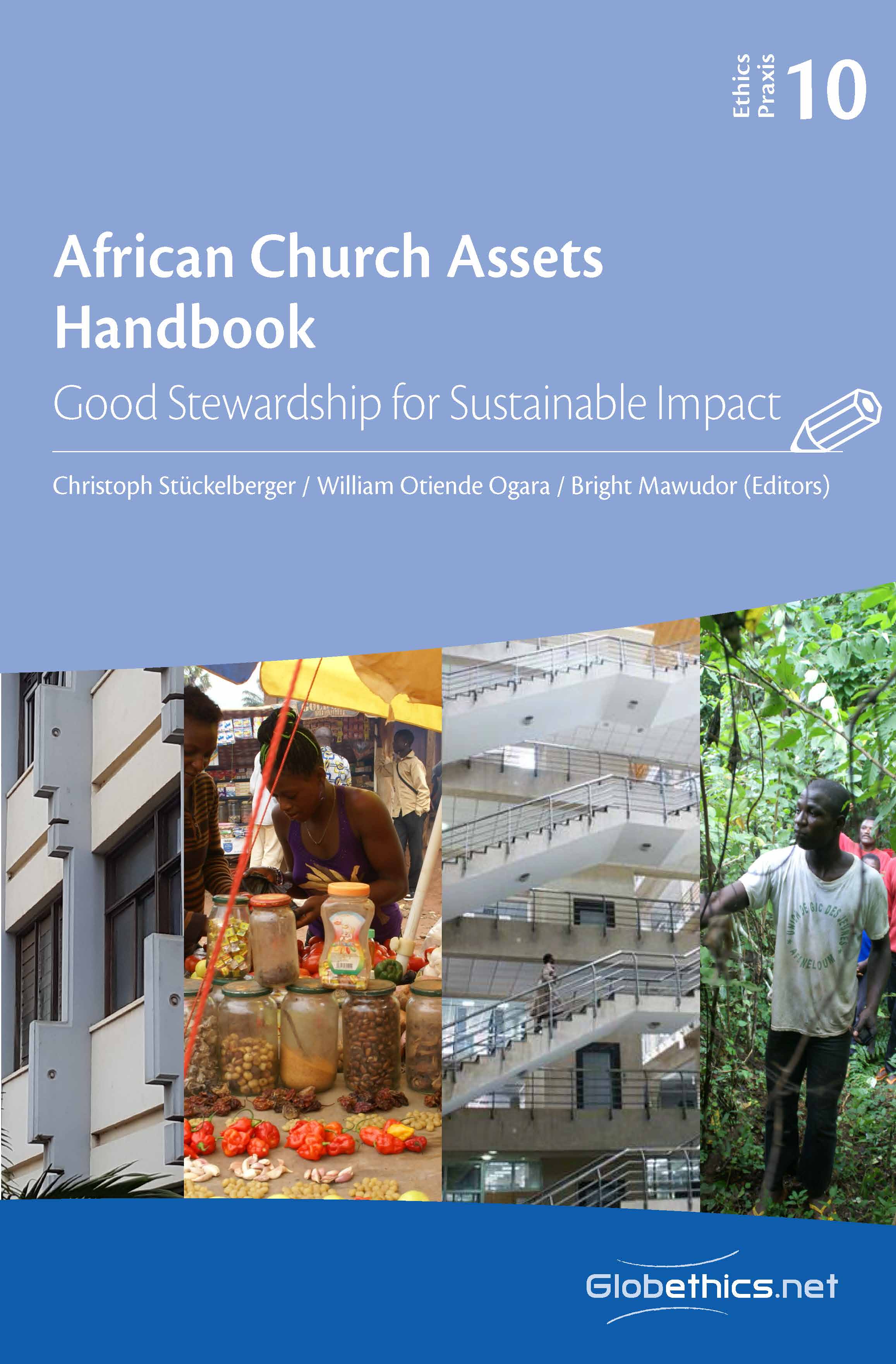Publications: Praxis Series
Praxis Series
Handbooks on practical ethics and educational tools
Urban Poverty in Burundi
- Subtitle:
- Salient Reasons and Church Response
- Author:
- Thierry Bahizi
- ISBN:
- 978-2-88931-535-2 (online version)
978-2-88931-536-9 - DOI:
- 10.58863/20.500.12424/4291171
- Series number:
- Praxis No. 18
- Publication:
- 2023
- Online copy:
- Download it for free
- Order print copies:
- Amazon.com Amazon.co.uk Amazon.fr Amazon.de
- Abstract:
This handbook is a deep dive on the causes of urban poverty in Burundi (Africa) guided by the results of an extensive research carried out by the author, Doctor in Theology and expert in Urban Ministry and Missiology. The analysis Thierry Bahizi offers here arises from a holistic viewpoint, including not only the variable of physical, also called material, poverty, but also its spiritual side. Along its pages, the reader is going to find a complete relation of the multiple faces of poverty in the urban nuclei of Burundi, how the local Churches and Parishes can and, in fact, do tackle the situation, and the essential conclusion on the importance of the spiritual work for pauperized collectives.
Les enfants de personne
- Subtitle:
- Étude clinique et de phénoménologie sociale sur l’enfance défavorisée en RD Congo
- Author:
- André Masiala ma Solo
- ISBN:
- ISBN 978-2-88931-420-1
- Series number:
- Globethics.net Praxis Series No. 17
- Publication:
- 2022
- Online copy:
- Download it for free
- Order print copies:
- Amazon.com Amazon.co.uk Amazon.fr Amazon.de
- Abstract:
La grande croissance démographique de la RD Congo favorise l’établissement d’une société composée par plus d’un 50% de jeunes en dessous des 15 ans. Depuis dix ans, l’UNICEF prévient que plus de 7 millions d’enfants ne fréquentent pas l’école, devenant des enfants de la rue, dépourvus de famille. C’est avec un regard de psychosociologue que Masiala ma Solo nous aide à trouver des pistes pour prévenir que ces petites victimes, les enfants de personne, restent tragiquement enfermées dans un cercle de destruction qui nuit à l’ensemble de la société civile congolaise.
Corruption-free Religions are Possible. Integrity, Stewardship, Accountability
- Editor:
- Christoph Stückelberger
- ISBN:
- 978-2-88931-422-5
- Series number:
- Globethics.net Praxis No. 16
- Publication:
- 2021
- Online copy:
- Download for free
- Order print copies:
- Amazon.com Amazon.co.uk Amazon.fr Amazon.de
- Abstract:
Corruption is abuse of public or private power for personal interests. Paying and receiving bribes in form of money, advantages, nepotism or sexual services exists in all sectors of society. This book with twenty articles from four continents analyses the mechanisms of corruption within religious institutions in Hinduism, Buddhism, Islam and Christianity. This book contributes ways corruption can be overcome by values, education, good management, accountability, state regulations and interfaith cooperation. A book for religious leaders, lay persons, politicians, educators and all those engaged to overcome corruption.
Blue Ethics: Ethical Perspectives on Sustainable, Fair Water Resources Use and Management
- Editors:
- Benoît Girardin / Evelyne Fiechter-Widemann
- ISBN:
- 978-2-88931-308-2
- Series number:
- Globethics.net Praxis No. 13
- Publication:
- 2019
- Download for free:
- English French Spanish Chinese
- Order print copies (English):
- Amazon.com Amazon.co.uk Amazon.fr Amazon.de
- Order print copies (French):
- Amazon.com Amazon.co.uk Amazon.fr Amazon.de
- Order print copies (Spanish):
- Amazon.com Amazon.co.uk Amazon.fr Amazon.de Amazon.es
- Order print copies (Chinese):
- Amazon.com Amazon.co.uk Amazon.fr Amazon.de Amazon.es
- Abstract:
For many policy makers, urban managers, water experts, technicians or activists, ethical perspectives in water management are not important or do not bring any added value. A debate seems to be locked between those stressing mainly the right of access to water for all and those who cannot go beyond economic realism. The sustainable use of a resource that becomes under growing pressure, in terms of extraction, allocation and recycling looks as a technical issue, not to say a technocratic one. This collective book claims the opposite. The many issues faced by the access to water as well as the sustainable use of the resource rely on open negotiations, settling conflicts, tariffs structure while expanding delivery and managing fairly water' scarcity. In all these processes, ethical values do matter.
African Church Assets Handbook
- Editors:
- Christoph Stückelberger / William Otiende Ogara / Bright Mawudor
- ISBN:
- 978-2-88931-252-8
- Series number:
- Globethics.net Praxis No. 10
- Publication:
- 2018
- Online copy:
- Download for free
- Order print copies:
- Amazon.com Amazon.co.uk Amazon.fr Amazon.de
Abstract:
Churches in Africa have vast assets: agricultural land and prime land in cities, real estate in schools, universities, hospitals, churches etc. How can these institutions become less dependent on donations by increasing revenue from these assets? Theological visions, ethical values, planning skills, integrity leadership, fair elections, professional governing structures, anti-corruption mechanisms, innovative strategies and investment partnerships are needed to aid such developments. This handbook offers conceptual knowledge, practical solutions and case studies, written by practitioners for practitioners in churches: pastors/priests, leaders, finance officers, asset managers, donor agencies, students and all those engaged for professional, innovative, efficient and faith-based asset management of churches and church-related organisations.
In the Shadows of Truth: The Polarized Family
- Editors:
- Elly K. Kansiime
- ISBN:
- 978-2-88931-203-0
- Series number:
- Globethics.net Praxis No. 8
- Publication:
- 2017
- Online copy:
- Download it for free
- Order print copies:
- Amazon.com Amazon.co.uk Amazon.fr Amazon.de
- Abstract:
In this book the author deals with the hidden realities posed by parents who spend much of their time occupied with work and leisure, while the children are left to their to their own devices. In the course of these long time period of separation, children build inappropriate relationships and indulge in detrimental practices that pose both short- and long-terms effects to themselves and the family at large. This book therefore focuses on parental ethical roles in the Uganda African context. It is a very moving family ethical exposition that will build up parents and help them to rethink their approach to family practises. It is a book intended to raise awareness of the subtle dangers that unintentional neglect can cause, potentially damaging their families and their children's future.






